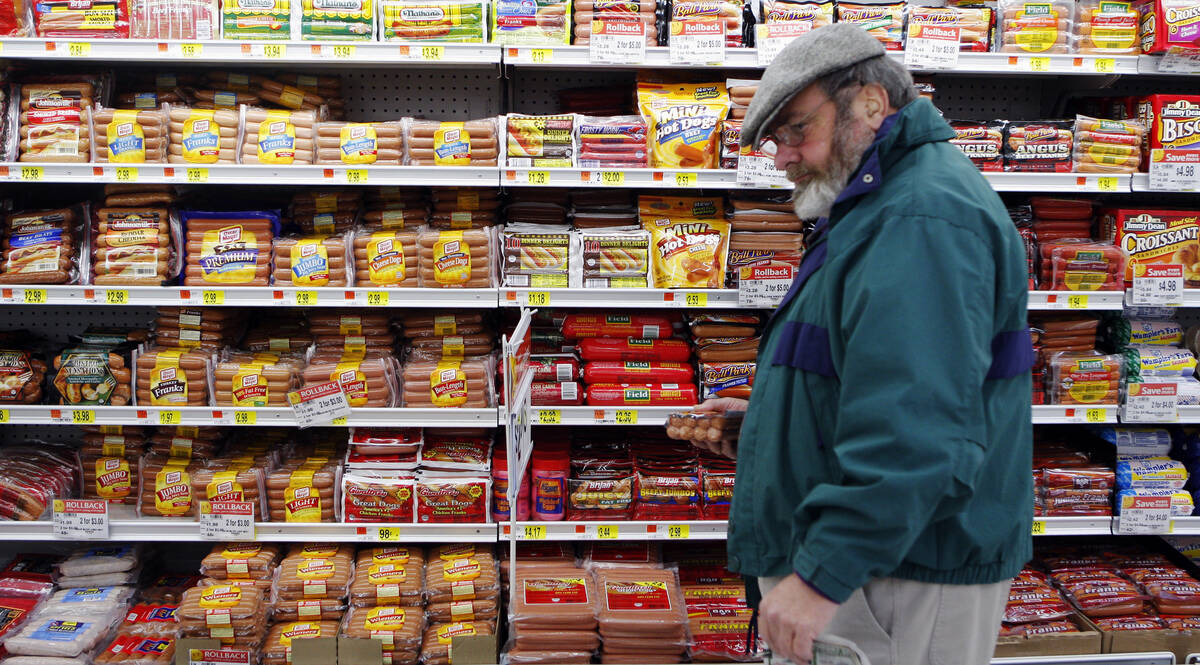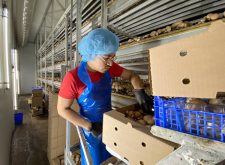Glacier FarmMedia – House of Commons agriculture committee members from all political parties last month grilled grocery retailers over food prices.
Francois Thibault, executive vice-president and chief financial officer for Quebec-based Metro Inc., was particularly taken to task by Conservative MP Lianne Rood for fees retailers charge produce growers to place their products in stores and by NDP MP Alistair MacGregor, who seemed incredulous when Thibault said he believed consumers trusted grocers.
Why it matters: Grocers have been feeling the heat from consumers over the price of food and fees charged to put products on store shelves.
Read Also

Canada seventh-most influential country on agri-food
Report from Dalhousie University and MNP shows Canada ranks seventh among G20 countries on agri-food influence.
Liberal MP Leah Taylor Roy chided the witnesses, which included Save-On Foods’ senior vice-president of retail operations Paul Cope and Canadian Federation of Independent Grocers’ senior vice-president Gary Sands, for not helping consumers while earning higher profits.
Sands said profits weren’t higher at independent stores, while Cope said sales volumes have gone up but profits went down in 2022 year-over-year.
Taylor Roy said it’s more accurate to compare pre-pandemic numbers to current figures.
“Your profits have definitely increased,” she said, citing Statistics Canada numbers that indicate an 89 per cent hike.
All three executives told the committee that grocers weren’t responsible for the rising food prices at stores. They said the increases are due to factors such as the war in Ukraine, labour shortages and rising transportation costs throughout the chain.
They said their profit margins remain stable.
Thibault said last year suppliers of dry grocery products served price increase notices more than 27,000 times, or three times the average.
But he also said the “inflammatory language” used to describe grocers in the last few months is “untrue and unproductive.”
“Our profit margins have remained stable for many years, and we have not passed on all the impact of inflation to customers as we have absorbed a part of the increase,” he said.
He also said higher margins in pharmacy compensated for lower margins in food.
Taylor Roy took issue with the use of margins as a measurement and said the margins are on a higher base because of inflation. She said the companies could report differently.
“I’m wondering why you keep falling back on (margins) and refuse to actually talk about the absolute numbers that you have made on groceries from people,” she said to all three witnesses.
“Perhaps you could address the fact that profits have gone up because of inflation and why you’re not passing any of that on to the consumer (and) somehow helping during this really difficult period by reducing prices somehow.”
MacGregor asked why Metro’s chief executive officer didn’t attend the meeting, considering that the grocery sector “is going through a very deep crisis of confidence with the Canadian people.”
He later said there is also a crisis of trust.
“We know that there were allegations of fixing the price of bread. The Competition Bureau has had to look at the activities of your sector several times,” he said. “We know from producers and processors and we have heard in this committee, in excruciating detail, of the hidden fees and fines that our producers and processors have had to pay to supply your large corporations.”
He asked what grocers will do to regain consumers’ trust.
Thibault said consumers show their trust through hundreds of thousands of transactions daily.
“I think we’ve demonstrated to customers that we provide value, quality, a healthy, secure environment and we provide transparency,” he said.
MacGregor said that isn’t what the committee has heard.
Rood’s questions focused on the fees producers pay to put their products in grocery stores. The committee heard in December that 44 per cent of fruit and vegetable producers sell at a loss and pay increasing fees to retailers.
Rood said her own family has had to pay chargeback fees to place their produce on store shelves.
Thibault said he didn’t know about specific fees but that negotiations were transparent.
Rood said it is “disheartening and worrisome” when grocers nickel-and-dime producers and is counter to the need for food security and sovereignty.
“If we don’t have farmers in the business of growing produce in this country to supply Canadians with healthy, wholesome, home-grown produce, then where are we going to get this from?” she asked.
– This article was originally published at The Western Producer.














